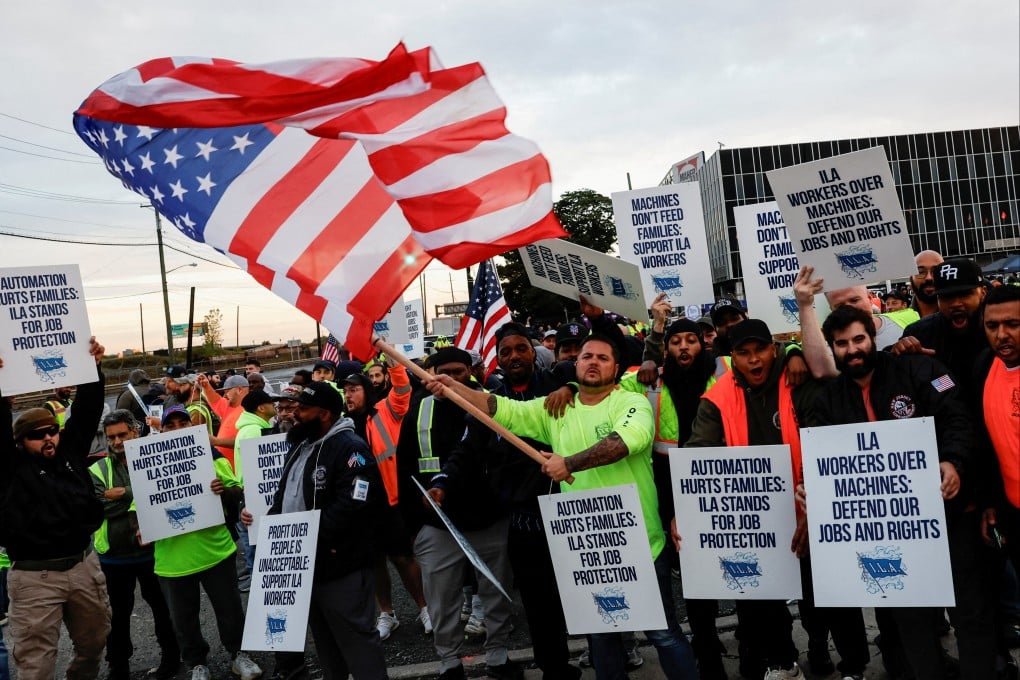Advertisement
Inside Out | Port workers’ protest against automation will only hurt US competitiveness
Anxiety remains over the contentious and emotional issue – described as tantamount to inviting Chinese spies into US ports – with union negotiations set to resume in January
Reading Time:3 minutes
Why you can trust SCMP
2

It must have been a huge relief for US President Joe Biden as a truce was called on the East Coast port strike that had threatened to be one of the most disruptive in American history.
Advertisement
After striking US port workers in Harold Daggett’s International Longshoremen’s Association (ILA) shut down all 36 East and Gulf coast ports for the first time in almost five decades, affecting more than half of US seaborne trade and inflicting costs of around US$4.5 billion a week, it was hard to ignore the smell of US electoral politics, just weeks away from a fiercely contested presidential election.
Apart from the economic disruption – Wilmington port, for instance, accounts for a quarter of US banana imports while Baltimore port unloads the most imported cars – the strike had been set to generate maximum possible embarrassment for the Biden administration, and potentially harm the electoral prospects of Kamala Harris.
And for the powerful “Make America Great Again” movement gathered around the nation’s conservative right, the strike puts a spotlight on the “problem” of international trade and the need to rebuild economic self-reliance. The US trade deficit remains near a record high (US$773 billion last year), and reliance on trade remained as high in 2022 (with a trade-to-gross-domestic-product ratio of 27.36 per cent) as it was in 2018 (at 27.61 per cent).
The strike, in focusing on automation as well as salaries, is a perfect opportunity for a fresh round of China-bashing – not only because China operates almost all the world’s most efficient automated port operations, but also because automation is being depicted as an existential threat to national security.
Advertisement
The surprise truce was called on Thursday night, with dock workers agreeing to a 62 per cent wage hike. However, negotiations have been suspended on other issues – above all, the row over port automation – until January 15, well clear of the brinkmanship of the fiercely contested presidential election.

Advertisement
